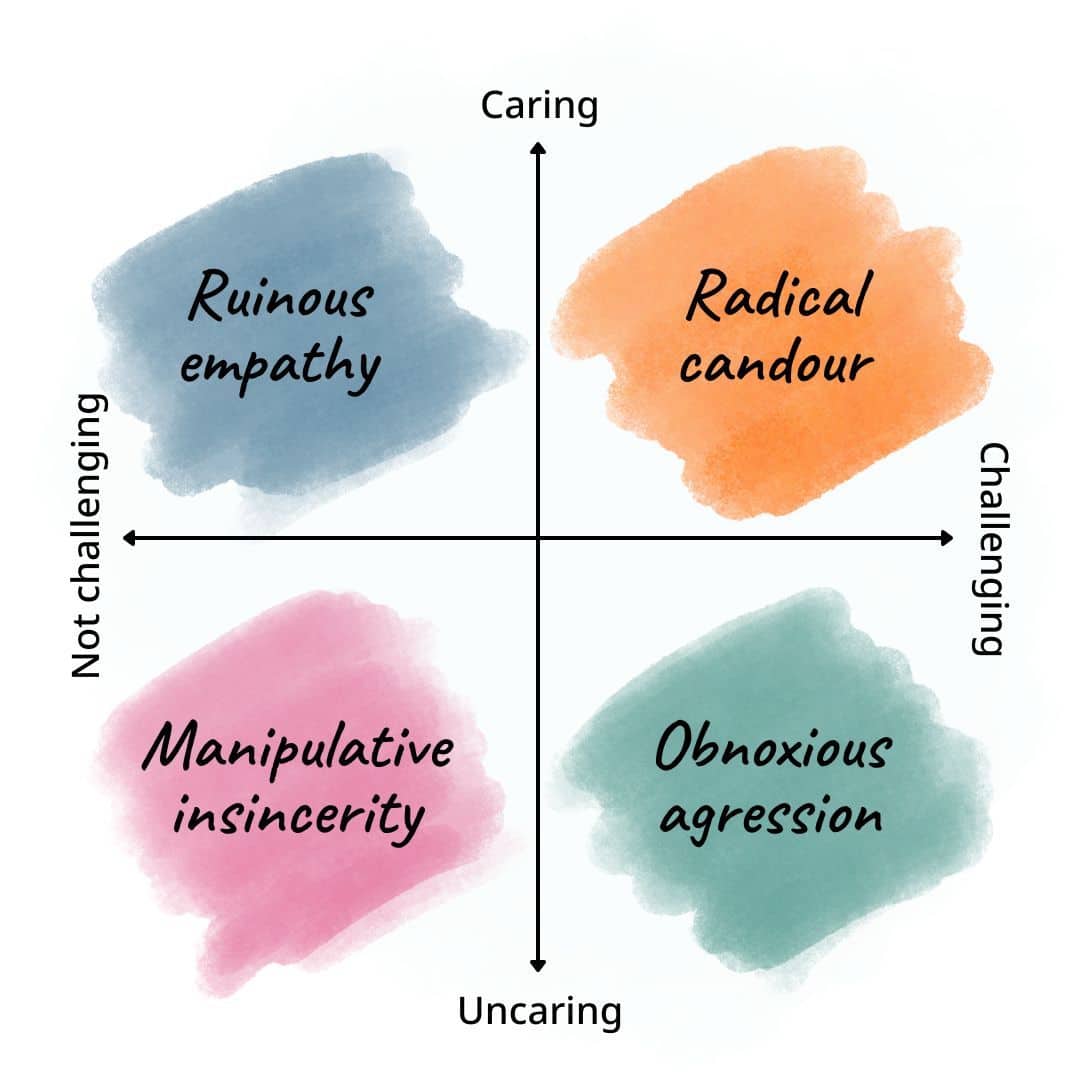I love conflict, (said no one ever*).
I live in a small block of flats – just six units. We’re a happy crew, and the bonds grew during the pandemic. We started a WhatsApp group to stay in touch and support each other during lockdowns.
A new kid recently moved into the block and is causing some ructions. There’s a lot of noise from their flat, some of it (errr, hmm) somewhat intimate. I’m on the ground floor and can’t hear anything, but those on the higher levels are unsure how to let the new neighbour know their sleep is being disrupted.
Last week, when the insomniac upstairs said, “I hate conflict”, I introduced her to Kim Scott’s Radical Candour concept.
Scott says that we shouldn’t avoid tough conversations for fear of offending. We need to say it, but with care by embracing the discomfort and speaking the truth kindly. That’s radical candour.
Scott’s model suggests challenging without kindness comes across as obnoxious aggression. If every action sparks an equal and opposite reaction, this approach only inflames.
Pretending everything is okay (and smiling through gritted teeth) is manipulative insincerity. Things won’t change, and you won’t feel any better.
And caring but avoiding challenge is ruinous empathy. I can think of many workplaces where leaders have not addressed underperformance. It doesn’t help the person and has an equally ruinous impact on the rest of the team.
I haven’t heard yet whether a kindly challenge is on the way. I hope it is. And I hope I don’t lose any neighbours over the situation!
* If you do know someone who says they love conflict, keep your distance!
